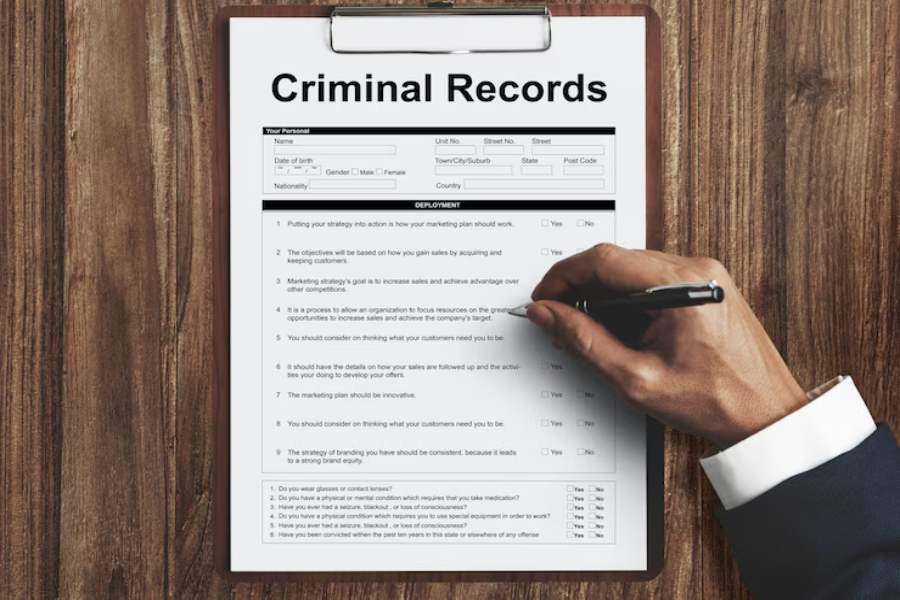When you’re facing a criminal charge, legal jargon can be confusing and intimidating. One term you might encounter is “disposed.” Understanding what this term means is crucial to tracking your case’s progress. For instance, someone charged with a minor offense like driving without a license may wonder, “What happens now?” They may also be concerned about the potential penalty for driving without a license. The term “disposed” gives a clear indication that the case has reached some kind of conclusion—whether that’s good news or not depends on the outcome.
Understanding Case Disposition
In legal terms, when a case is marked as “disposed,” it means that the court has made a final determination. Essentially, the case has been closed. This does not always mean the defendant is guilty or that the charges were dismissed. It simply means that the court has taken all necessary action and there are no more hearings or judgments expected unless an appeal is filed.
Disposition can apply to both criminal and civil cases, but in the context of criminal law, it indicates that the criminal proceedings are over. What happens after a case is disposed of depends on the outcome: guilty verdict, acquittal, dismissal, plea bargain, or another resolution.
Common Types of Dispositions
There are several different ways a criminal case can be disposed of, and each has different legal implications:
Guilty
If a person pleads guilty or is found guilty at trial, this is the most straightforward type of disposition. The individual will typically move on to the sentencing phase, where penalties such as fines, probation, or jail time are imposed.
Not Guilty
A not guilty verdict at trial means the accused has been acquitted of the charges. The case is disposed of in the defendant’s favor, and no further legal action will be taken on that charge unless new evidence emerges.
Dismissed
In some instances, the court may dismiss the case. This could happen for many reasons: lack of evidence, procedural errors, or a successful motion by the defense. A dismissal is also a final disposition, though it may leave room for the prosecution to refile the case in some circumstances.
Nolle Prosequi
This Latin term means the prosecutor has decided to drop the charges. It’s similar to a dismissal but comes specifically from the prosecution’s side. Once this happens, the case is considered disposed of.
Deferred Disposition or Diversion
Some jurisdictions offer deferred disposition or diversion programs. These allow defendants to avoid a conviction if they meet certain conditions, such as community service or rehabilitation. Once the terms are fulfilled, the case is disposed of—often without a conviction on the record.
Why Case Disposition Matters
Knowing the disposition of a case can have long-term implications. A guilty disposition can lead to criminal records, loss of certain rights, and difficulty with employment. A not guilty or dismissed disposition, on the other hand, could leave the person with a clean slate.
This term is also important for background checks. If an employer or landlord sees a criminal case listed but marked “disposed,” they may seek more context about how it ended.
Can a Disposed Case Be Reopened?
Generally, once a case is disposed of, it’s considered final. However, there are exceptions. If new evidence surfaces, or if there was a legal error during the trial, an appeal can be filed. Also, if a case was dismissed without prejudice, it can be refiled by the prosecutor.
In rare cases, expungement or sealing of records can also follow a disposed case, especially if the outcome was favorable to the defendant.
Keeping Track of Case Disposition
You can usually find out the disposition of a case through the court where it was tried. Many jurisdictions also offer online access to case information. This can be helpful if you’ve lost track of what happened or need proof for employment, immigration, or other legal matters.
Final Thoughts
The word “disposed” might sound vague, but in the world of criminal justice, it holds important meaning. It signals the end of a legal chapter—whether that’s a conviction, acquittal, or dismissal. Understanding your case’s disposition helps you know where you stand and what steps, if any, you need to take next.
So, if you or someone you know is involved in a criminal case, don’t just assume the case is still active or pending. Check the court records and look for the disposition. It might surprise you to find out the case has already been resolved—whether it was for a serious crime or something as common as facing the penalty for driving without a license. Either way, knowledge of the term “disposed” provides a clearer picture of your legal status.


